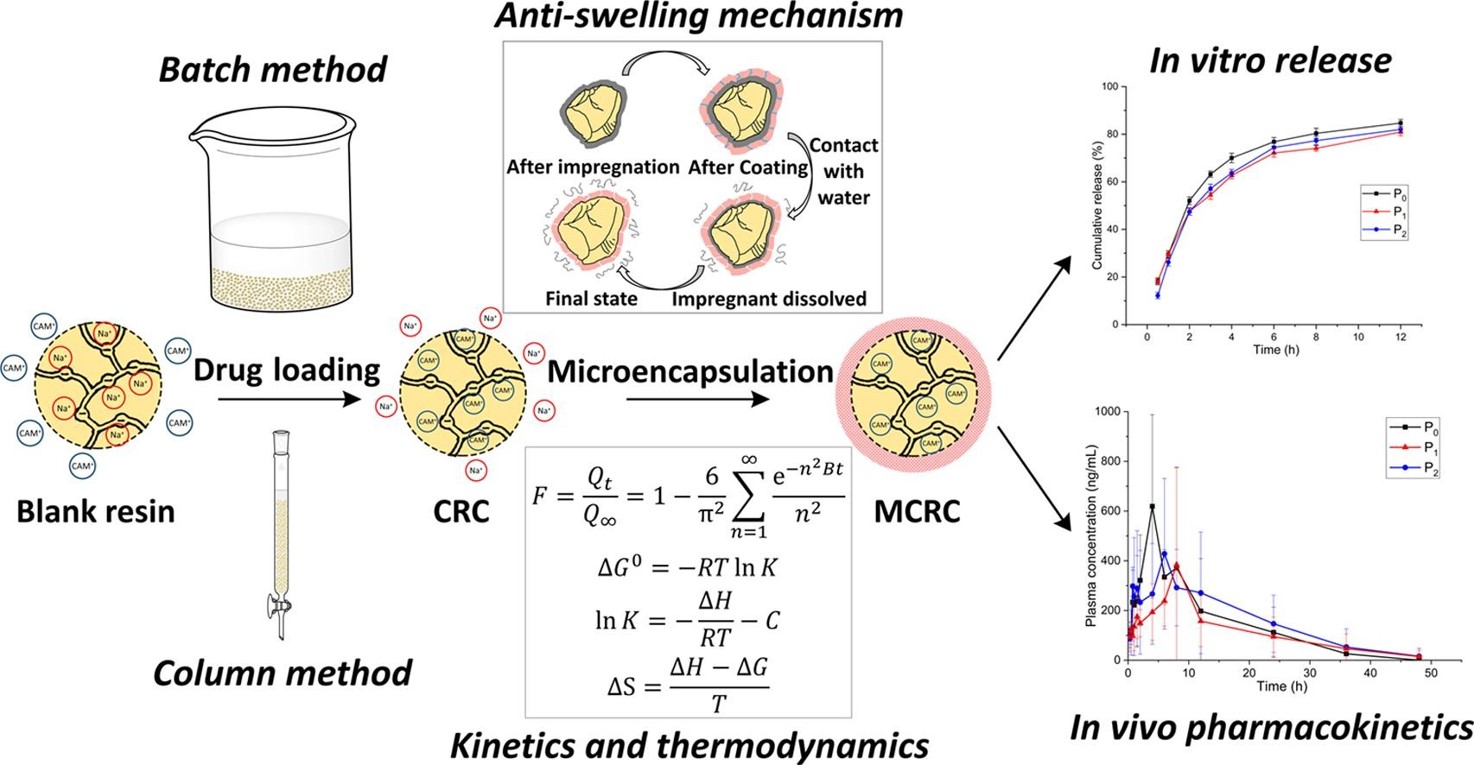Studies on the in vitro ion exchange kinetics and thermodynamics and in vivo pharmacokinetics of the carbinoxamine-resin complex

The short half-life and bitter taste of carbinoxamine maleate (CAM) lead to poor compliance by pediatric patients who are being treated for allergic rhinitis. To address these issues, carbinoxamine-resin complexes (CRCs) were prepared by ion exchange and then coated with Kollicoat SR 30D. The resultant microencapsulated carbinoxamine-resin complexes (MCRCs) were dispersed into the medium to obtain the final suspensions. The drug loading kinetics and thermodynamics of CRCs, anti-swelling mechanism of the impregnant in MCRCs, in vitro release, and in vivo pharmacokinetics of the suspensions were systematically evaluated.
The drug loading process was found to obey a first-order kinetic process that was spontaneous, entropy-reduced and exothermic, and the diffusion of CAM into the resin was the rate-limiting step. During microencapsulation, the impregnant could create a certain buffer space to control the swelling of CRCs and maintain the coating film intact. The homemade preparations had release behaviors similar to that of the reference in vitro and achieved sustained release in vivo. The low drug loading preparation had a higher relative bioavailability of 109% owing to its faster release and better dispersibility. Therefore, the suspensions based on MCRCs could be successfully applied to treating allergic rhinitis in children.
Author links open overlay panelYaxin Deng, Tiantian Wang, Jinlong Li, Wanxiao Sun, Haibing He, Jingxin Gou, Yanjiao Wang, Tian Yin, Yu Zhang, Xing Tang
International Journal of Pharmaceutics, Volume 588, 15 October 2020, 119779
https://doi.org/10.1016/j.ijpharm.2020.119779

